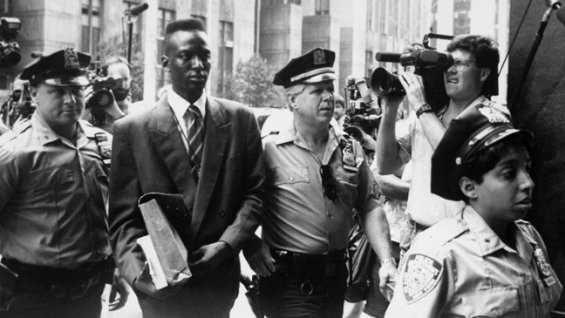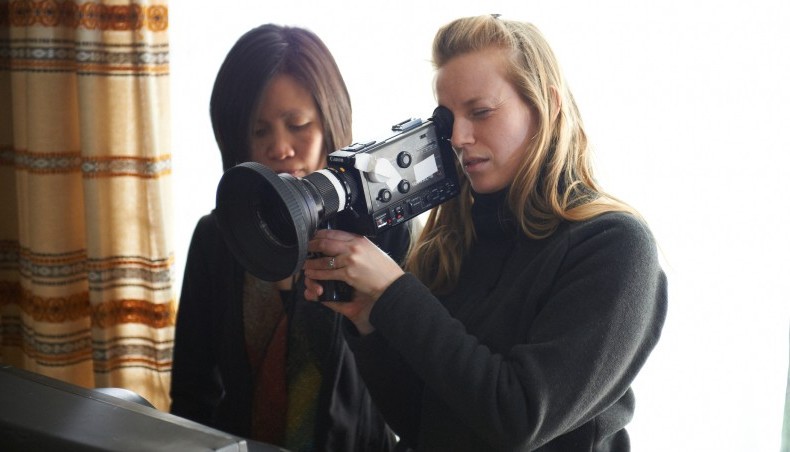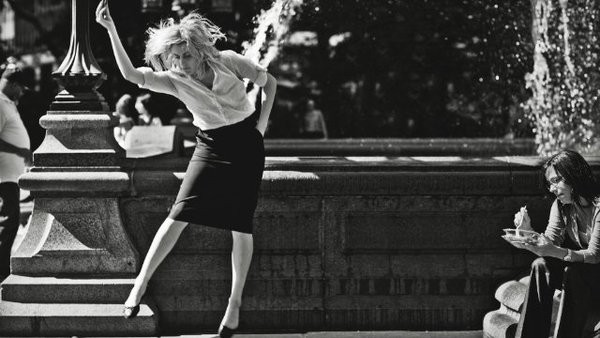William Blake once wrote that exuberance is beauty. Despite the success of Ben Affleck’s Argo here, this fest seems to be driven by women filmmakers. This is most surprising, since we just came out of such a bad year for women. But three of them were the major forces behind their projects that told important stories, sometimes personal, sometimes not. I came here feeling the pressure of time and age — and frankly feeling some despair about the state of things for women. I never expected I would leave here feeling hopeful not just for women this year but for the doors they creaked open this year, how they managed to do it, how well they did it, and how successful they’ve become doing it.
Greta Gerwig’s influence on Noah Baumbach is profound. Sure, many of his faithful fans will never agree. In many ways, this is a filmmaker who is in love. And that love made him want to tell the story she wanted to tell. How he feels about her is noticeable throughout the film. His camera clings to her, caresses her nimble body and Garbo-like features. But what makes Frances Ha so great isn’t so much the direction as the force of nature that is Gerwig herself. At first you might think the film is just a Girls retread. My first thoughts were — who are these vapid, annoying, self-centered young child-people who can’t grow up nor see the world beyond their own naval? Is this what decades of helicopter parenting has done to the upper-middle class whites? But Frances Ha, as it turns out, is so much more than that. It is a story about a strong, unbreakable bond between two women who can’t quite let go of each other. Most of us women have gone through that with a best friend. You have to figure out how to live your own lives or you will submerge co-dependent and conjoined. This isn’t a movie that is ever going to answer the question of female identity by the appearance of SuperCock. These are women who are actual human beings with their own life trajectories. Imagine that.
Gerwig shimmers like a candle burning at both ends throughout the film — hopelessly “undatable” even still. She isn’t your usual too-pretty female protagonist situation where you’re thinking, no way would this person ever have any real problems. Gerwig is goofy enough that she doesn’t have to be pretty first. She can be so many other things all at once. What she is — awkward, prideful, fumbling through life and trying to just succeed with the tools she’s been given but maybe they came from someone else’s toolbox. Her parents told her who she might be. College trained her to be a dancer. And then life tossed her around for a while, laughing all the while as life is wont to do. The best laid plans and all of that. Sure, for some people it all works out just fine. But others have to fail and fail again before they find their footing. What Frances does have is unbound energy. Her youthful body needs to run and do impromptu headstands and spin around on a dance floor. Eventually she finds a way to channel all of that beautiful energy and once she does the film flips. It suddenly goes from something we’ve seen many times to something exceptional, something great.
* * *

Sarah Burns has some nerve making a documentary with her father, the legend Ken Burns. Yet this project, the Central Park Five, was driven and brought to the screen by her singular vision. Burns is a social activist with a background in civil rights. The biggest challenge was condensing the lengthy, detailed book into an hour and a half documentary. What to leave in, what to take out. In the end, the filmmakers had to make some hard decisions — and those decisions likely aren’t going to satisfy everyone. But the story is one that needed to be exposed. Moreover, it is a hard lesson for young minorities in the inner cities: know your rights. Lawyer up. But unfortunately, none of that was ever taught to these youths. They learned their lessons the hard way but maybe their stories will help inform others who might find themselves in the position of being manipulated by law enforcement, a corrupt DA and a city that really needs certain kinds of fake monsters to carry out their agendas. Maybe because the teens involved were otherwise known as “bad kids” or “trash” to the power elite nothing was ever done to punish the district attorney or the law enforcement who misled the teens during their interrogation. Nor did anyone ever try to undo the damage done to them by the news media and politicians and business owners who fanned the flames of racist hate throughout the trial. No one was ever held accountable for their actions. But the story meant something to Sarah Burns. She never dropped the ball nor abandoned them. She isn’t the sole director on the film but as one of three directors she nonetheless stands out as one of the emerging filmmakers out of Telluride.

Finally, the unexpected auteur Sarah Polley nearly walked away with the Telluride Film Fest with her magnificent masterpiece, Stories We Tell. What is Stories We Tell? How do you even define it? It’s part documentary, part narrative, part fiction, part truth. It’s impossible to classify because Polley has made it up as she went along. She simply refused to follow anyone’s rules and decided to free up the frame. How revolutionary an idea to not have a traditional documentary — but to tell a story the only way she knew how to tell it, by utilizing her dazzling imagination.
Who is Sarah Polley? That is one of the questions that gets answered. Who is her family? Her mother? Her father? Those questions are answered too, in a way. Every character in the film is engaging, whether or not it’s Polley’s direction and choices that made this so, it’s distinctively so. When she intro’d the film she said she promised the actors that no one would ever see it. That might account for how natural they are in front of the camera, and how unguarded. But like Frances Ha and the Central Park Five, Stories We Tell saves its most effective moments for the third act. Here, Polley addresses the notion of what it means to love someone. What it means to be someone’s father — whether biologically or not. You might be inclined to think that blood is thicker than water but maybe that isn’t true at all.
Polley has mastered the art of organic storytelling here. There is never a self-conscious moment in the film. She has it completely under control throughout, so much so that she is able to pull off many magical moments you never see coming. What a surprise this film was. Where will it fit in the Oscar race? Where will any of them fit? It’s hard to say. The Oscars are designed to recognize established forms. The documentary selection process is bizarre enough that one can’t count on them to name the Central Park Five one of the best of the year, though it is surely worthy. Frances Ha is likely looking at a screenplay nomination, and maybe awards attention for Gerwig. But what of Stories We Tell? It isn’t a documentary and yet the people taking part onscreen aren’t actors either. It’s a gray area between portrayal and depiction. Polley will likely get a screenplay nod as well, and the Best Director category may be simply too competitive. With ten Best Picture nominees it’s conceivable that Stories We Tell could make the cut. And there’s still a very remote outside shot it will be beloved enough to make a more unprecedented mark.
Winning awards is a power play. Never forget that. So if you find yourself feeling sleazy for even talking about film awards in the same paragraph as art remember that one Oscar nomination for any of these women (Polley will be looking at #2) means more access, more money, more choices, more movies.
And one thing we need a lot more of are vital, powerful storytellers like these.
_____________________________________________________
Sasha Stone is the founder of Awards Daily. Reprinted with Permission.







